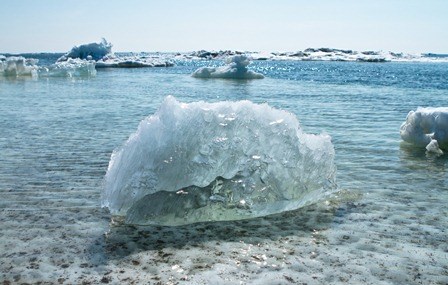Climate change isn’t just the result of excessive greenhouse gas emissions. Climate change is part of the Earth’s DNA. The Earth’s climate has always gone through changes. Scientists know the current changes are part of the Earth’s cycle, and humans have to make lifestyle adjustments in order to survive. The fierce storms, earthquakes, floods, and other disasters will only get worse as the Earth goes through its realignment with the Universe. According to some scientists, humans can’t stop the realignment, but they can slow it down. And that’s the reason countries all over the world decided to form the Paris Climate Accord.
Slowing down the way the Earth behaves isn’t a new idea. Climate scientists know the Earth’s temperature gets a little warmer every year. In fact, the Earth is one degree warmer than it was before the industrial age replaced the age of agriculture. One degree doesn’t sound like much, but over the course of more than a hundred years, it changed the planet’s DNA. The oceans get warmer, certain species become extinct, and the weather acts like it’s on steroids.
When the Paris Climate Accord got started three years ago, the goal was to slow down the Earth’s warming cycle. Scientists thought reducing greenhouse gas emissions would help slow down global warming. Those scientists thought another one-degree temperature rise by the year 2100 would be devastating. But holding global warming in a checkmate situation would be enough to control some damage that a two-degree temperature rise will do to the environment.
But scientists miscalculated global warming. Instead of an additional one-degree temperature rise by the year 2100, scientists now say that will happen in the next twenty-five years unless people around the world change the way they perceive global warming.
The United Nations gave the Intergovernmental Panel on Climate Change the task of examining what the Earth would do if they could limit global warming to 1.5 degrees instead of 2 degrees. The panel’s report confirmed a half degree less warming would make a difference in the way the Earth responds to climate change. By limiting global warming by half of a degree, the oceans wouldn’t rise as fast because the polar ice would melt slower, and fewer species would go extinct. The summer heat wouldn’t be as life-threatening, and droughts and precipitation extremes would not be as severe.
Scientists say there’s not a lot of time left to cut carbon emissions and the other gases that exacerbate global warming. Extreme events like the marine heat wave in the Pacific Ocean is, according to climate scientists, the result of human activity. So the half degree rise instead of an additional one-degree rise is the new goal. But achieving that goal will take cooperation from the countries who release the most toxic gases into the atmosphere.






